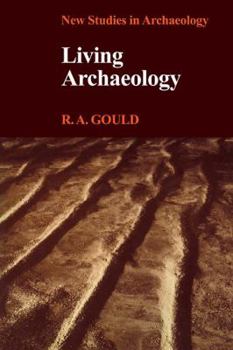Living Archaeology (New Studies in Archaeology)
Select Format
Select Condition 
Book Overview
'Living archaeology, ' says Richard Gould, 'is ethnoarchaeology in the active voice'. Using as case studies his own observations of Australian Aborigines, and those of others, the author presents a unified theory of ethnoarchaeology. He demonstrates a reliable way to infer adaptive behavior in prehistoric communities by studying adaptive behavior in a contemporary society and noting the evidence of this behavior in material discards. Gould examines and dismisses the argument by analogy, long accepted as fundamental in earlier archaeological studies of this kind, and, as an alternative, he proposes the argument by anomaly. The book starts by recording a day in the life of a traditional Australian Desert Aborigine camp. the author identifies many social, verbal, and ideational interactions that would be difficult, if not impossible, to infer directly from the typical 'archaeological' remains of this non-material behavior. The book examines differences between actual as opposed to anticipated human behavior and suggests that understanding the reasons for these contrasts is what characterizes ethnoarchaeology at its best.
Format:Paperback
Language:English
ISBN:0521299594
ISBN13:9780521299596
Release Date:April 1980
Publisher:Cambridge University Press
Length:288 Pages
Weight:0.85 lbs.
Dimensions:0.7" x 6.0" x 9.0"
Customer Reviews
0 rating





